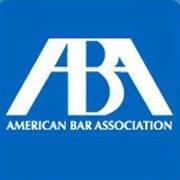Glossary of DUI Terms
The legal system uses a glossary of DUI terms. These terms are related to DUI arrests and related driving violations. This list is to assist you understand these terms.
Alcohol Boating Safety Act
Colorado law that prohibits the operation of a watercraft on the public waters of Colorado while under the influence of alcohol or any other substance. And in addition, impairs one’s ability to operate a watercraft. Section 42-4-1301(1)(g), Colorado Revised Statutes (C.R.S.).
Alcohol Concentration
Alcohol concentration means either grams of alcohol per one hundred (100) milliliters of blood or grams of alcohol per two hundred ten (210) liters of breath.
BAC
BAC blood alcohol content. In Colorado, blood alcohol level is determined by reference to breath alcohol level. The per se legal limit for BAC in Colorado is .08%.
Booked
Being “booked” refers to the administrative step taken after the arrested person is brought to the police station. This includes entry of the person’s name. Second, the crime for which the arrest was made. And third other relevant facts on the police docket. In addition, it may also include photographing, fingerprinting, and the like.
BrAC
BrAC breath alcohol content. Colorado will allow the prosecutor to try to prove the defendant’s guilt by direct reference to the breath alcohol level, rather than having to convert the breath alcohol level to blood alcohol level.
BUI
BUI Boating under the influence. In Colorado, it is unlawful for any person to operate a watercraft on the public waters of this state who is under the influence of intoxicating liquor. Secondly under the influence of any other substance which has impaired such person’s ability to operate a watercraft. And furthermore, has ten one-hundredths percent (.10%) or more by weight volume in the person’s blood based upon milligrams of alcohol per one hundred (100) cubic centimeters of blood as shown by a chemical analysis of such person’s breath, blood or urine.
Burnoff
Burn off is the human body’s ability to metabolize alcohol, and eliminate it from the system through the functioning of vital organs. The burn off rate varies from individual to individual. I addition, it can even be different for the same person depending upon various factors.
Chemical Test
Chemical test is an analysis of a person’s blood, breath, urine or other bodily substance for the determination of the presence of alcohol. And furthermore any other substance which may impair a person’s mental ability or physical ability.
Community Service
Community service is work, projects or services for the benefit of the community. Community service must be assigned, supervised and recorded by appropriate public officials.
Driving
Driving is usually the ability to exert control over the vehicle. Colorado’s DUI law refers to driving and/or “operating.” Officers usually need not observe someone driving in order to arrest them for DUI. Circumstantial evidence of driving is typically sufficient to establish this element.
Driving Privilege
Driving privilege refers to both the driver’s license of those licensed in Colorado. In addition the driving privilege of unlicensed residents and the privilege of nonresidents, licensed or not.
Drunk Driving
Drunk driving refers to criminal cases that are called DUI, DWI, OUI, OWI, DUI-OS, or other acronyms. They generally describe two types of cases. First, is where the driver is sufficiently impaired by alcohol, drugs. Or a combination of the two so that the driver cannot drive safely. Second, “drunk driving” relates to those cases where someone is above that state’s legal limit. The legal limit is .08 in Colorado, no matter how safely the person is driving.
DUI
DUI, driving under the influence, in violation of Section 42-4-1301(1)(g), Colorado Revised Statutes (C.R.S.). This can either refer to driving under the influence of alcohol. Secondly driving under the influence of drugs. Thirdly driving under the influence of a combination of liquor and drugs. This is the most widely used acronym for drunk driving cases in Colorado.
DUI-CS
DUI-CS is driving under the influence of an unlawful drug which is a controlled substance. The possession of which is unlawful under the Colorado Controlled Substances Law. This is in violation of Section 42-4-1301(1)(g), Colorado Revised Statutes (C.R.S.).
DUI-OS
DUI-OS is driving under the influence of any other substance which has impaired a person’s ability to operate a motor vehicle, in violation of Section 42-4-1301(1)(g),(C.R.S.). “Any other substance” may refer to any drugs for which one has a prescription, or even over-the-counter drugs, if they have caused one’s ability to drive to become impaired.
DWAI
DWAI Driving While Ability Impaired section 42-4-1301(1)(f),(C.R.S.). Like DUI, DWAI can refer to driving while ability impaired as the result of either drinking alcohol or taking drugs, or both. Defining intoxicated or impaired is at the heart of a drunk driving case. It is critical to consult with a DUI lawyer in your area that understands these sophisticated issues.
Enhancement
Enhancement refers to increased, or more serious, punishment in a Colorado DUI case. A second offense that occurs within five (5) years of the first offense carries jail time of ten days to one year. In addition community service of forty-eight (48) to one hundred and twenty (120) hours. Also a fine of up to $1,500 and a driver’s license suspension. And furthermore may require an ignition interlock device for your vehicle. A third offense that occurs in a lifetime requires a minimum 60 day jail penalty. A fourth offense becomes a felony. Hire a qualified DUI Attorney to reduce or possibly eliminate these consequences.
Field Sobriety Tests (FSTs)
Field sobriety tests FSTs are mental and coordination tests used by law enforcement officers to determine whether a motorist is impaired or driving under the influence. These FST tests may include the Horizontal Gaze Nystagmus (HGN) test and the Walk and Turn (WAT) test. In addition the One Leg Stand (OLS) test and alphabet recitation. And finally the number recitation, finger-to-nose, finger-count, including others.
Fixation
Fixation refers of the ability of the eye or eyes to focus on a single point.
FUI
FUI is flying under the influence. In Colorado, it is a crime for any person to operate an aircraft in the air or on the ground or water, while under the influence of intoxicating liquor, narcotics or other habit-forming drug. In addition to operate an aircraft in the air or on the ground or water, in a careless or reckless manner so as to endanger the life or property of another.
Horizontal Gaze Nystagmus
Horizontal gaze nystagmus NGH is the jerking of the eyeballs, that occurs when the eyes gaze or move to the side along a horizontal plane. A finger or pen is moved from side-to-side to determine whether this condition exists.
HUI
HUI is hunting under the influence. Colorado law provides that a person involved in a hunting incident in which his or her use of a weapon caused a serious bodily injury or death to another person. Also who has an alcohol concentration of eight one-hundredths of a percent (.08%) or more. And in addition is under the influence of any drug or controlled substance. That person shall have his hunting privileges revoked or suspended for two (2) years, in addition to any other punishment imposed. The chemical test must be administered within three (3) hours after the hunting incident.
Hunting Implied Consent law in Colorado
Hunting implied consent law in Colorado applies to any person who exercises the privilege of hunting in Colorado. Any person shall be deemed to have given implied consent to a chemical test of his blood, breath, urine or other bodily substance. This is for the purpose of determining the presence of alcohol or any other drug if the person is involved in a hunting incident in which his use of a weapon caused an injury or death to a person. In addition, if a person refuses to submit to the test at the request of a law enforcement officer, then none shall be given.
In consequence, the hunting privileges of a person who refuses the test shall be suspended for four (4) years. Any person whose hunting privileges are revoked or suspended pursuant to this law shall be required to complete an approved hunter education course before hunting privileges may be restored.
Implied Consent
Implied consent is Colorado’s “implied consent” law means that any person who operates a motor vehicle upon the public highways, public roads and streets of Colorado. Therefore, they shall be deemed to have given his or her consent to a chemical test or tests of his breath, blood or urine for the purpose of determining alcohol concentration. Similarly the presence of any other substance which would impair such person’s ability to operate a motor vehicle.
Nystagmus
Nystagmus is the involuntary jerking and/or bouncing of the eye.
One Leg Stand (OLS) Test
One leg stand OLS test is a standardized Field Sobriety Test. The suspect is instructed to stand on one leg while looking at his or her foot and count.. If you fail this test
Qualified Person to Withdraw Blood
Qualified person to withdraw blood is any person who has been trained to withdraw blood in the course of their employment duties. This includes but is not limited to laboratory personnel, phlebotomist, emergency medical personnel, nurses and doctors,
Reasonable Doubt
Reasonable doubt is the standard of proof in a criminal case, which includes DUI cases. In order to find someone guilty of a DUI, the judge or jury must determine that the prosecutor proved each element of DUI beyond a reasonable doubt.
Reduction of Charges
Reduction of charges refers to the court or the prosecutor reducing a serious criminal offense to a less serious charge. For example, reducing murder down to the less serious charge of manslaughter. In Colorado, the reduction of a DUI charge to anything less serious is prohibited!
Refusal To Take Breath, Blood And /Or Urine Test
Refusal to take breath, blood and/or urine test refers to an individual declining to take a chemical test. The failure to provide an adequate breath sample as required by the Colorado Implied Consent Law when requested by a law enforcement officer.
Retrograde Extrapolation
Retrograde extrapolation is the term for a scientific analysis of one’s blood alcohol level (BAC), to determine what that person’s BAC was at a previous time. For example, the time that a driver gives a breath, blood, or urine sample.
Standardized Field Sobriety Tests (SFSTs)
Standardized field sobriety tests SFSTs are a battery of three tests developed by the National Highway Safety Traffic Administration (NHTSA) to determine whether someone is driving under the influence. The three tests are the Horizontal Gaze Nystagmus Test (HGN), Walk and Turn test (WAT), and the One Leg Stand test (OLS)
Vehicle
Vehicle in Colorado, the term “vehicle” as used in DUI law refers to a motor vehicle, including but not limited to cars, trucks, SUVs, ATVs, riding lawnmowers, golf carts, and farm implements.
Walk and Turn (WAT) Test
Walk and turn WAT test is one of the Standardized Field Sobriety Tests (SFSTs) wherein the DUI suspect is first instructed to walk nine heel-to-toe steps down a designated straight line. Second turn around to the officer’s satisfaction. Third walk nine more heel-to-toe steps back. The officer observes the suspect for any one of a number of standardized clues. This includes failure to walk heel-to-toe, wrong number of steps, stepping off the line, using arms for balance, and others. If you took this test as part of your arrest for DUI, it is important to contact a qualified Colorado DUI attorney to discuss the administration of this test.

For Trial Advocacy Graduate




